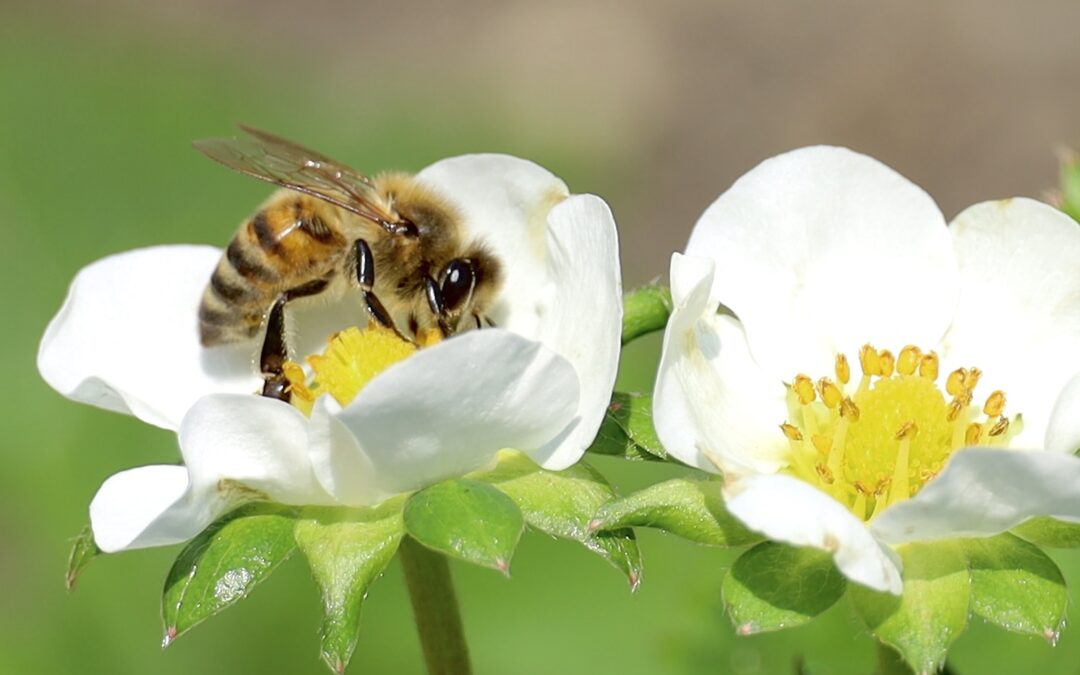In our quest for pest-free environments, it’s important to keep in mind the environmental repercussions of relying heavily on pesticides. Widespread pesticide use typically has far-reaching consequences, including detrimental effects on ecosystems, water sources, and non-target mammals, amphibians and birds. But, by embracing eco-friendly pest control practices and prioritizing organic solutions, we can effectively manage pests while minimizing harm to the environment. In this article, we’ll give you an overview of the environmental impact of pesticide use, explore alternative approaches, and highlight strategies that promote sustainable pest control.
1. The Ecological Ripple Effect
Pesticides, while designed to target specific pests, can disrupt ecosystems in unexpected ways. The indiscriminate use of these chemicals harms beneficial insects, such as bees, butterflies, and ladybugs, that play a vital role in pollination and natural pest control. By avoiding pesticide use, we can protect these essential organisms and maintain the delicate balance of ecosystems, ensuring biodiversity and long-term ecological sustainability.
2. Contamination of Water Sources
Pesticides have the potential to contaminate water sources through runoff or leaching into the soil. This pollution puts aquatic life in danger and can have residual effects on the entire surrounding ecosystem. By opting for eco-friendly pest control methods, we can reduce the presence of harmful chemicals in our waterways, safeguarding the health of aquatic organisms and preserving water quality.
3. Collateral Damage
Pesticides often have unintended consequences, impacting non-target organisms such as birds, amphibians, and mammals. These chemicals can disrupt food chains and have cascading effects throughout the ecosystem. By adopting organic solutions and targeted pest control techniques, we can minimize the risk to non-target organisms, allowing them to thrive and continue in their crucial ecological roles.
4. Long-Term Soil Health
Pesticides can degrade soil quality by harming beneficial microorganisms, reducing nutrient cycling, and disrupting the delicate balance of soil ecosystems. This degradation can impact plant growth, agricultural productivity, and the overall health of ecosystems. Organic pest control methods, such as crop rotation, companion planting, and biological controls, promote soil health and sustainability, ensuring long-term agricultural viability.
5. Sustainable Pest Control Strategies
Alternative approaches to pest control focus on prevention, monitoring, and employing natural solutions. Integrated Pest Management (IPM) techniques utilize a combination of methods tailored to specific pests, reducing reliance on pesticides. These strategies may include biological controls, physical barriers, habitat manipulation, and cultural practices. By implementing sustainable pest control strategies, we can effectively manage pests while minimizing environmental harm.
As we become more aware of the environmental consequences of pesticide use, embracing eco-friendly pest control practices becomes more important. By not relying on chemical pesticides and prioritizing alternative organic solutions, we can protect the ecosystems we live in, preserve water quality, support biodiversity, and promote long-term sustainability. As a pest control agency, Bee Friendly embraces these principles to ensure our pest management efforts align with our shared environmental values, allowing you to create a healthier, safer, and more sustainable living environment for generations to come.



